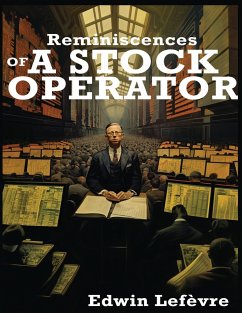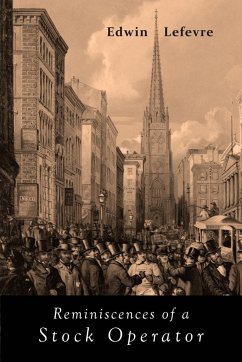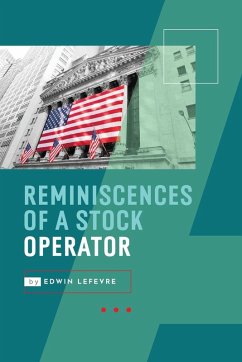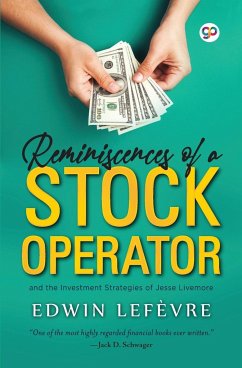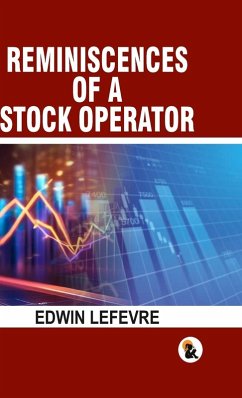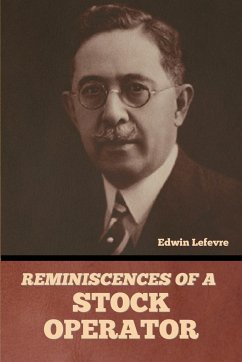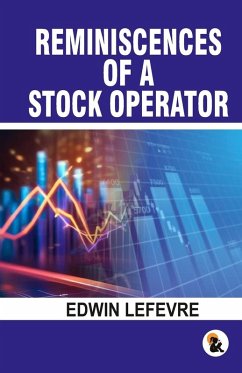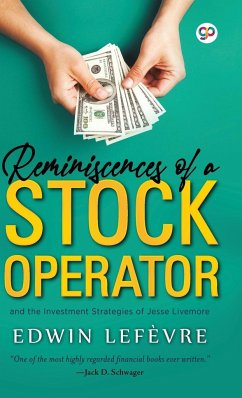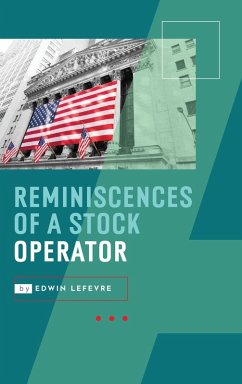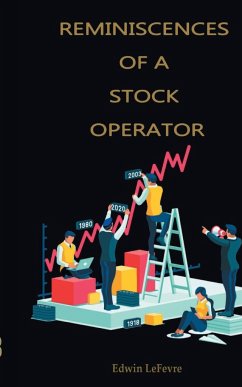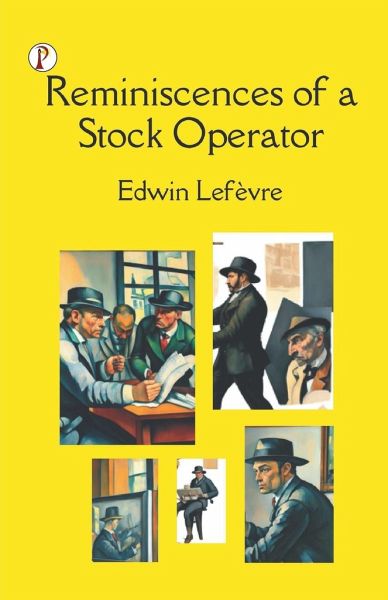
Reminiscences of a Stock Operator
Versandkostenfrei!
Versandfertig in 1-2 Wochen
19,99 €
inkl. MwSt.

PAYBACK Punkte
10 °P sammeln!
"Reminiscences of a Stock Operator" is a classic investment book written by Edwin Lefèvre. It is a fictionalised biography based on the life and experiences of Jesse Livermore, one of the most legendary and successful stock traders of the early 20th century. The story follows Larry Livingston (based on Jesse Livermore) as he navigates the highs and lows of the financial markets, mastering the art of speculation and learning invaluable lessons along the way. The book provides insights into market trends, technical analysis, and the intricacies of market manipulation. It is widely regarded as a...
"Reminiscences of a Stock Operator" is a classic investment book written by Edwin Lefèvre. It is a fictionalised biography based on the life and experiences of Jesse Livermore, one of the most legendary and successful stock traders of the early 20th century. The story follows Larry Livingston (based on Jesse Livermore) as he navigates the highs and lows of the financial markets, mastering the art of speculation and learning invaluable lessons along the way. The book provides insights into market trends, technical analysis, and the intricacies of market manipulation. It is widely regarded as a valuable resource for investors and traders, combining captivating storytelling with practical wisdom and timeless lessons about speculation and financial markets.



